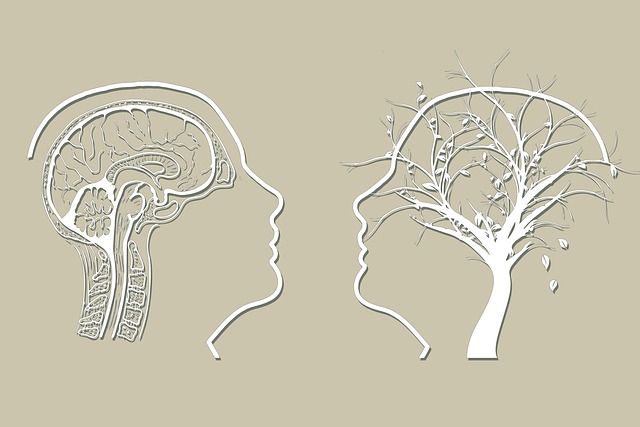Colorado Springs Cognitive Processing Therapy (CSPCT) leverages positive thinking exercises like journaling and mindfulness to transform negative thought patterns into adaptive, optimistic ones. This evidence-based approach enhances emotional regulation, prevents depression, and improves life satisfaction. Integrating gratitude practices and physical activity alongside therapy fosters resilience against anxiety, depression, and other mental health challenges, contributing to a more supportive community through public awareness campaigns that reduce stigma.
Discover the transformative power of positive thinking through our comprehensive guide. We explore how Colorado Springs Cognitive Processing Therapy (CPPT) can help reshape your mindset, leading to improved well-being and mental health. Learn effective techniques to integrate positive thinking into daily life, from cognitive restructuring to measuring success. Uncover common practices that sustain positive changes, making CPPT a powerful tool for personal growth and resilience.
- Understanding Positive Thinking and Its Impact
- Colorado Springs Cognitive Processing Therapy: An Overview
- Integrating Positive Thinking Exercises into Daily Life
- Common Positive Thinking Techniques for Effective Cognitive Restructuring
- Measuring Success and Sustaining Positive Changes with CPPT
Understanding Positive Thinking and Its Impact

Positive thinking is a powerful tool that can significantly impact one’s mental wellness and overall emotional regulation. By adopting positive cognitive processing, individuals in Colorado Springs can transform their outlook on life, fostering a sense of optimism and resilience. This simple yet effective practice involves challenging negative thoughts and replacing them with more constructive and realistic ones.
Implementing this concept is easier than it sounds. A great way to start is through journaling exercises that guide you to reflect on your day, identifying negative thought patterns and reframing them. This practice can be a game-changer in preventing depression by helping individuals navigate their emotions more effectively. With regular engagement in emotional regulation techniques, one can cultivate a positive mindset, leading to improved mental wellness and overall life satisfaction.
Colorado Springs Cognitive Processing Therapy: An Overview

Colorado Springs Cognitive Processing Therapy (CSPCT) is a therapeutic approach that focuses on transforming negative thought patterns into more positive and adaptive ones. This therapy, offered in the vibrant city of Colorado Springs, leverages evidence-based techniques to help individuals regain control over their mental health. CSPCT is particularly effective for those dealing with anxiety, depression, and other common mental health challenges, fostering a deeper sense of well-being and resilience.
Incorporating elements of Crisis Intervention Guidance and Compassion Cultivation Practices, CSPCT helps clients identify and challenge distorted thinking, replacing it with realistic and positive perspectives. This process not only enhances Mental Health Awareness but also empowers individuals to navigate life’s challenges more effectively. Through personalized sessions, therapists guide clients towards embracing a more optimistic outlook, leading to improved emotional regulation and overall quality of life.
Integrating Positive Thinking Exercises into Daily Life

Incorporating positive thinking exercises into daily life can significantly enhance overall well-being, much like Colorado Springs Cognitive Processing Therapy offers mental health services to transform lives. Start with simple practices such as keeping a gratitude journal, where noting down three good things that happened each day shifts focus onto positives. This practice, reminiscent of a Community Outreach Program Implementation, fosters a mindset shift from negative to optimistic. Additionally, engaging in regular physical activity releases endorphins, naturally boosting mood and reducing stress, which is crucial for maintaining mental health.
Developing a self-care routine centered around positive thinking strengthens resilience against life’s challenges. This could include mindfulness exercises like meditation or deep breathing, which are effective tools in managing anxiety and cultivating peace. By integrating these practices into daily routines, individuals can create a safe space for themselves, much like a sanctuary within the bustling city of Colorado Springs. Remember, consistent effort in this regard not only enhances personal growth but also prepares mental health professionals to better assess risks through comprehensive risk assessments tailored to each client’s needs.
Common Positive Thinking Techniques for Effective Cognitive Restructuring

In the realm of Colorado Springs Cognitive Processing Therapy (CPT), positive thinking exercises play a pivotal role in effective cognitive restructuring. This therapy technique involves challenging and replacing negative thought patterns with more adaptive, positive ones. Common strategies include mindfulness meditation, where individuals learn to focus on the present moment, enhancing self-awareness and reducing rumination on negative thoughts. Journaling is another powerful tool; documenting experiences and reframing negative events into learning opportunities can foster a more optimistic outlook.
Additionally, positive affirmations and cognitive reappraisal are fundamental. Affirmations, such as “I am capable of overcoming challenges,” can help individuals counterbalance negative self-talk. Cognitive reappraisal encourages examining situations from different perspectives, finding the silver lining in adversity. These techniques, integrated into daily routines, not only aid in CPT therapy but also contribute to overall stress management and trauma support services, ultimately enriching public awareness campaigns development.
Measuring Success and Sustaining Positive Changes with CPPT

Measuring success and sustaining positive changes through Colorado Springs Cognitive Processing Therapy (CPPT) involves a strategic approach that goes beyond mere intention. CPPT encourages individuals to track their progress by setting achievable goals aligned with their therapy objectives. This could involve regular self-assessment, keeping a gratitude journal, or utilizing digital tools designed for tracking moods and behaviors. By quantifying positive shifts, such as reductions in anxiety levels or increases in life satisfaction, clients gain tangible evidence of their progress.
Sustaining these changes requires ongoing practice and integration of CPPT techniques into daily routines. Public Awareness Campaigns Development and Mental Illness Stigma Reduction Efforts play a crucial role in fostering an environment conducive to continuous positive thinking. Through consistent application, individuals can solidify newfound perspectives, making them less susceptible to relapse or backtracking. This sustained positive change not only benefits the individual but also contributes to a more optimistic and resilient community overall.
The implementation of positive thinking exercises, as demonstrated by Colorado Springs Cognitive Processing Therapy (CPPT), offers a powerful approach to enhancing mental well-being. By integrating these techniques into daily routines, individuals can effectively challenge negative thought patterns and promote a more optimistic outlook. CPPT’s structured methods ensure success through consistent measurement and evaluation, fostering lasting positive changes. Embracing these practices can revolutionize one’s perspective, leading to improved resilience and overall happiness.














